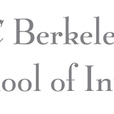A (very) brief history of "information"; or, what are we all doing here, anyway? (Geoff Nunberg)

Summary: It accumulates on our hard drives and lurks in our genes. Companies and consultants promise to refine it out of data or distill it into knowledge. It can topple churches and tyrants; the health of democratic societies depends on its free exchange (and free, we're told, is exactly what it wants to be). Its revolution has upended our lives: now we do its work, suffer its fatigue from its explosion, and worry about its widening gap, as we take up our roles in its society, its economy, and its age — not to mention (in a more transitory and purely local way) its school. So what could it — or not to beg the question, what could they — possibly be? Does "information" name a single concept or a family of concepts? Or is it not really a concept at all, but just a bit of semantic sleight of hand? For starters, it helps to look at how we got here. It turns out that confusion of the meanings of "information" began at least two centuries ago (and as it happens, dictionaries all get the story wrong). "Information" has always been a jerry-built notion that conceals its own inconsistencies, so that it can slip surreptitiously between one sense and another. But ultimately, I'll suggest, that's exactly what has made the term so adaptable and so useful to us: the words we name our ages after are always ones that enable us to leave important things unsaid.
